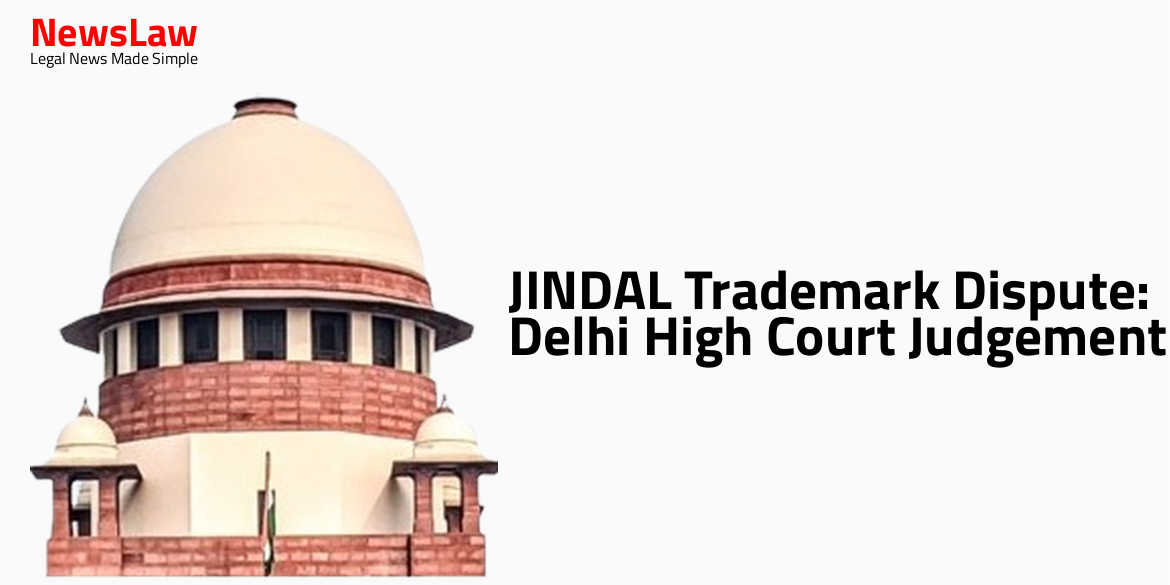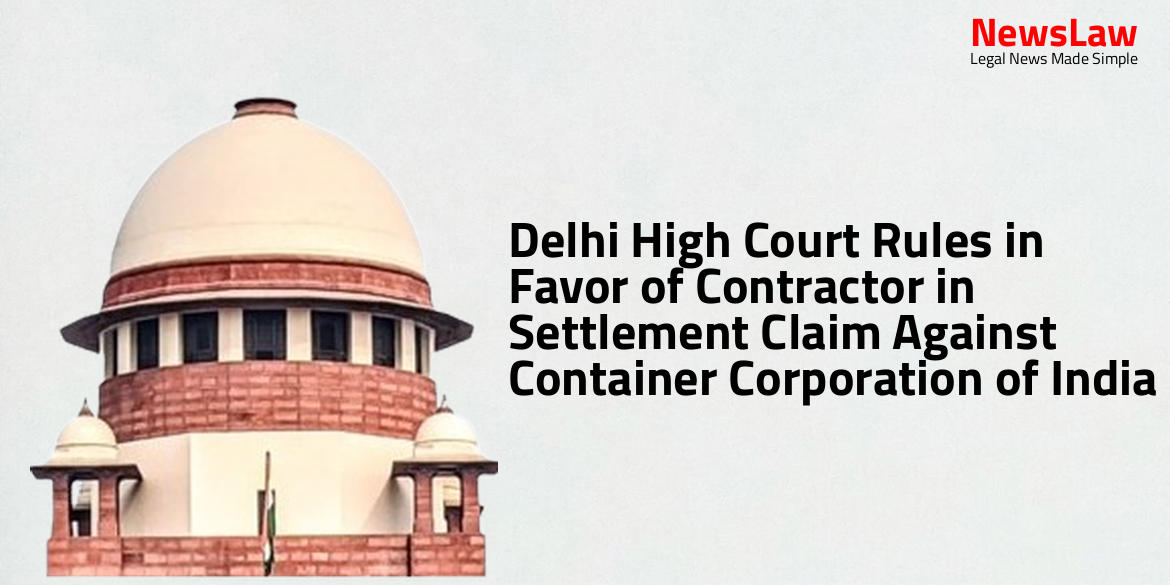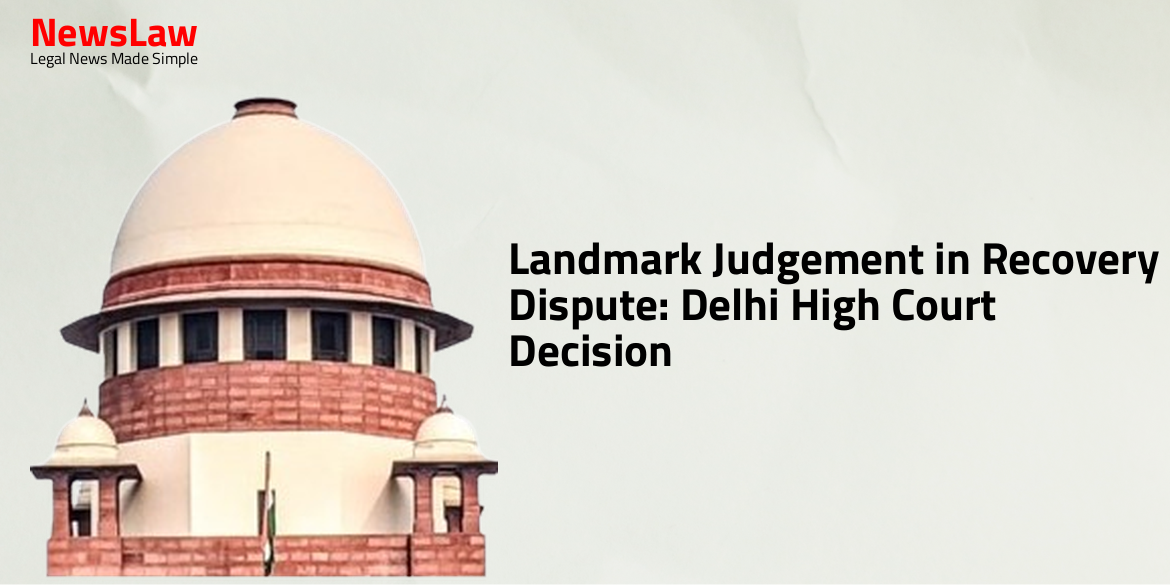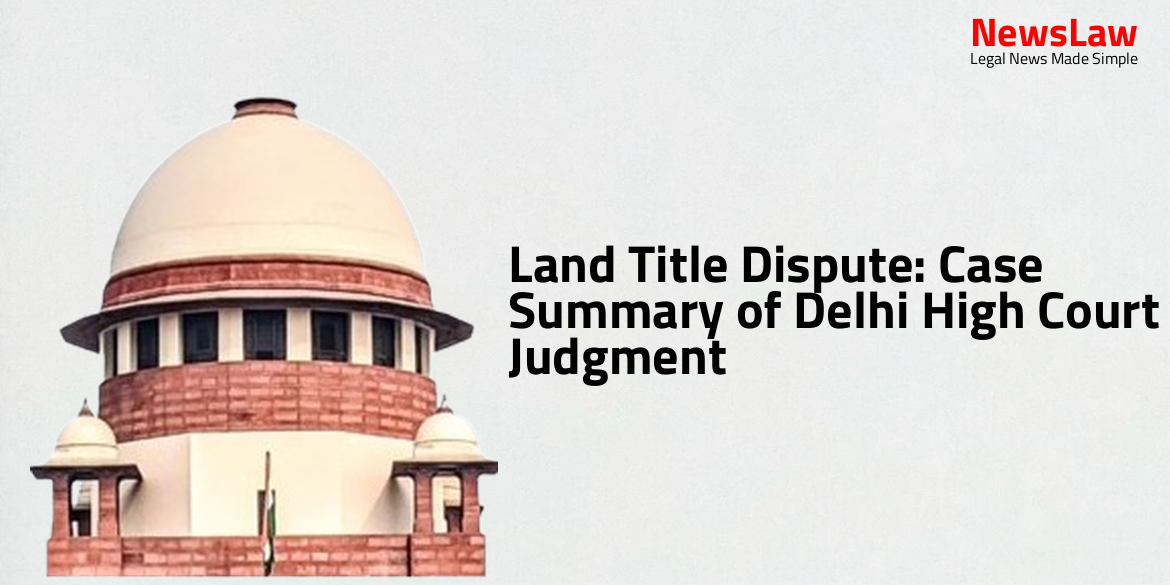The JINDAL trademark dispute at the Delhi High Court has reached a significant conclusion. The court’s judgement sheds light on the intricacies of trademark law and the rights of individuals to use their names in business. Stay tuned to learn about the key highlights of the case involving the parties in question.
Facts
- Defendant No. 2 claimed user of the mark ‘JINDAL’ since 2006-2007 in an affidavit but did not provide bills as evidence.
- Defendant No. 2’s mark for class 17 was objected to and not granted registration.
- Defendant No. 2 filed bills in 2022 to claim user for the mark in class 17, with the earliest bill from December 14, 2010.
- Defendant No. 1 filed a trademark application for a device mark in class 17 initially on a ‘proposed to be used’ basis, later corrected to October 1, 1997.
- Defendant No. 2 applied for the mark in class 17 with a user claim starting from July 1, 2006.
- Plaintiff’s mark ‘JINDAL’ was cited as a conflicting mark.
- The suit seeks a permanent injunction against the defendants from using the ‘JINDAL’ marks or any deceptively similar marks.
- An ad interim injunction was granted in favor of the plaintiff on May 9, 2023.
- Defendant No. 2 stated that the mark ‘JINDAL’ was adopted from the surname of defendant No. 2’s father, Sh. Lal Chand Jindal.
- Plaintiff’s grievance is that defendant has no registration for the mark ‘JINDAL’ for PVC pipes but started using it despite being the registered holder of the mark ‘J-PLEX’ from May 18, 2020.
- Plaintiff claimed prior user of the mark ‘JINDAL’ for PVC pipes and registration since September 1, 2006.
Arguments
- Defendant 1 has the device mark ”
JINDAL” registered in its favour. - Registration of common names like ‘Jindal’ as a trademark carries the risk of such registration, as everyone can use their names on goods.
- Defendants have been using the trademark ‘JINDAL’ in classes 11 and 20 since 1981.
- Plaintiff did not commence business under the trademark ‘JINDAL’ for goods in class 17 until after the defendants had been using it for 13 years.
- Plaintiff filed subsequent trademark applications claiming user since 2006 to make it prior to defendant’s use in 2006.
- Plaintiff is not the owner of the mark ‘JINDAL’, as Jindal India Limited claims ownership and user since 1952.
- Plaintiff was aware of defendant’s use of the mark ‘JINDAL’ through various proceedings and oppositions.
- Defendant’s counsel asserts concealment and suppression of material facts by the plaintiff.
- Plaintiff’s use of the mark ‘JINDAL’ in PVC pipes and fittings in class 17 was since 2006.
- Several other entities have obtained registration of the mark ‘JINDAL’, and plaintiff cannot claim exclusivity.
- Plaintiff admits before the Registrar that trademarks ‘JINDAL (label)’ and the goods of the plaintiff are entirely different from defendant’s ‘JINDAL’ mark.
- The defendant’s counsel highlighted that an ad interim injunction was passed in favor of the plaintiff due to the inability of the defendant to present the use of the mark ‘JINDAL’ for PVC pipes.
- Defendants admitted to dealing in pipes and fittings under the mark ‘J-PLEX’.
- The defense of Section 35 of the Trade Marks Act, 1999 would not be available to the defendants as the trademark application mentioned the father’s surname as ‘Gupta’ not ‘Jindal’.
- Plaintiff’s counsel argued that if the defendant manages to prove their claims, it would still be affected by the 1981 user of the plaintiff in G.I. pipes.
- The plaintiff has various registrations since 1973 under the Jindal brand for steel pipes and tubes, which are considered allied and cognate goods to PVC pipes.
- The plaintiff’s counsel relied on several legal precedents to support their arguments regarding trademark infringement and distinctiveness of the mark ‘JINDAL’.
- Plaintiff’s counsel emphasized the use of ‘JINDAL’ as a ‘name’ in business is allowed but not as a mark according to the Act.
- Defendants claimed to have been using the mark ‘JINDAL’ for 16 years before the institution of the suit in April 2023, which was calculated to start from 24 April 2007.
- Plaintiff’s counsel pointed out discrepancies in the defendants’ claimed sales figures and highlighted the use of the mark ‘J-PLEX’ separately for goods in class 17.
- There was no suppression of information by the plaintiff regarding the trademark applications and e-records of the defendants.
- Plaintiff’s counsel scrutinized the sales figures provided by the defendants regarding various entities related to the ‘JINDAL’ mark.
Analysis
- The plaintiff claimed user since April 2006 for the mark ‘JINDAL’ in class 17 on PVC pipes and fittings.
- The defendants did not have any ‘JINDAL’ trademark registrations in class 17 but had registrations for unrelated goods in classes 11 and 20.
- The plaintiff’s user of the mark ‘JINDAL’ on PVC pipes may only date back to 2022 based on documentation provided by the defendants.
- Various documents and invoices provided by the defendants suggest that they had been using the ‘JINDAL’ mark on PVC materials much earlier than the plaintiff.
- The plaintiff’s reliance on trademark registrations may not establish prior use of the ‘JINDAL’ mark for PVC pipes compared to the defendants.
- The defendants’ use of ‘JINDAL’ for PVC pipes appears to predate the plaintiff’s use as per website records and historical documents presented.
- The court emphasized that identity through name is crucial, and individuals have the right to use their names on their goods without monopolization.
- The natural identity of an individual is considered essential to their being.
- An individual’s inner self-identification should be respected and not despised.
- No one should impose solitude on an individual who wishes to be left alone.
- Societal norms or outdated ideals should not dictate or punish an individual’s choices regarding their identity.
- The sanctity of identity has been recognized in various court cases including National Legal Services Authority v. Union of India, Navtej Singh Johar v. Union of India, and K.S. Puttaswamy v. Union of India.
- Section 35 in India protects bona fide use of one’s own name.
- Unlike the US law, no exception is created when the name is used as a trade mark.
- In India, innocent use is impermissible but bona fide use allows the defendant to benefit from Section 35.
- Debates exist on the application of foreign laws like Parker Knoll to the Indian legal system.
- The balance of convenience favored the defendant who has been using the mark ‘JINDAL’ for 13 years and has their family name ‘JINDAL’ in official documents.
Decision
- The court found that the Respondent No 1 had violated the RPC in multiple instances.
- The actions of Respondent No 1 were deemed to be in breach of professional conduct standards.
- The court highlighted specific provisions of the RPC that were contravened by Respondent No 1.
- Evidence presented during the proceedings supported the conclusion that Respondent No 1 had acted against the RPC.
- Sanctions were imposed on Respondent No 1 based on the violations of the RPC.
Case Title: JINDAL INDUSTRIES PRIVATE LIMITED Vs. JINDAL SANITARYWARE PRIVATE LIMITED & ANR. (2024:DHC:4609)
Case Number: CS(COMM)-251/2023



